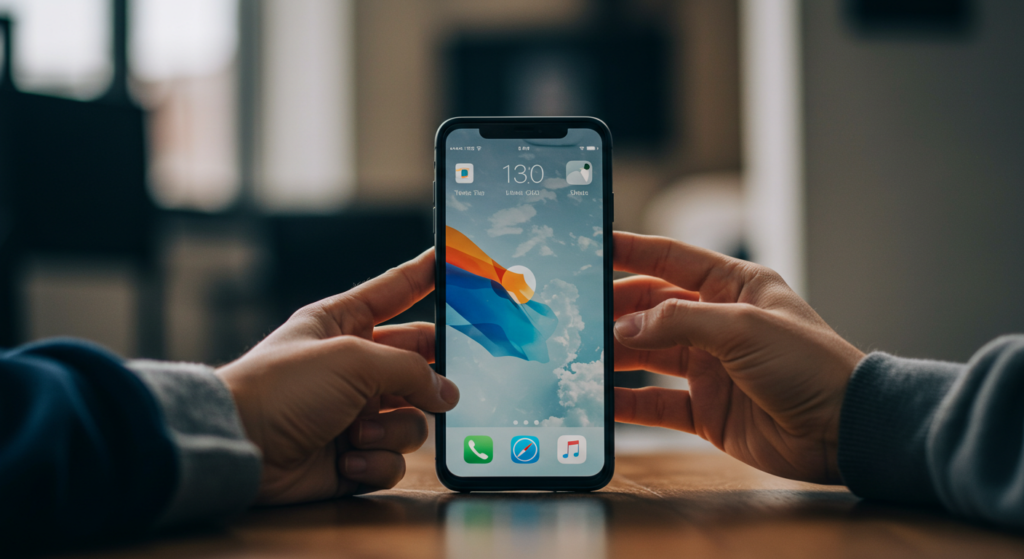
Table of Contents
Mobile phones have revolutionized the way we communicate, work, and live. From basic calling devices to multifunctional smartphones, they have become an integral part of modern life. These devices offer countless conveniences, but they also come with certain drawbacks that cannot be ignored.
In this article, we will delve into the pros and cons of mobile phones, examining their benefits and limitations. By understanding the pros and cons about mobile phones, you can make informed decisions on how to use them effectively in your daily life.
The Pros of Mobile Phones
Communication: Mobile phones allow instant communication through calls, texts, and messaging apps, keeping people connected regardless of distance.
Internet Access: Smartphones provide access to the internet, enabling browsing, social media, and email communication on the go.
Convenience: Mobile phones combine multiple functions, like a calculator, calendar, and camera, in one compact device, making life easier.
Emergency Help: Phones offer quick access to emergency services and loved ones during urgent situations through calls or SOS features.
Entertainment: Mobile phones provide entertainment through music, videos, games, and streaming platforms.
GPS and Navigation: Smartphones have GPS for real-time navigation, ensuring users don’t get lost and can plan travel routes easily.
Photography and Video Recording: Mobile phones come with cameras, making it easy to capture memories and moments without needing a separate device.
Work on the Go: With apps for email, documents, and project management, phones enable productivity even outside of an office setting.
Educational Tools: Mobile phones give access to e-books, online courses, language learning apps, and educational videos for continuous learning.
Social Networking: Smartphones make staying connected with friends and family easier through social media platforms.
Online Shopping: Mobile phones enable hassle-free shopping with various e-commerce apps and websites.
Health and Fitness Tracking: Many phones can sync with apps or wearable devices to monitor steps, calories, sleep, and even heart rate.
Reminders and Alarms: Mobile phones help users stay organized with reminders, alarms, and to-do list apps.
Mobile Banking: With secure banking apps, users can transfer money, pay bills, and manage accounts easily.
Connectivity for Smart Devices: Phones can control smart home devices like lights, cameras, and thermostats via apps.
Job Searching: Platforms like LinkedIn and job portals allow users to search and apply for jobs directly from their phones.
News and Updates: Mobile phones provide access to the latest news and updates through apps and websites.
Cultural Awareness: Phones expose users to different cultures and global trends, broadening perspectives.
Language Translation: Apps like Google Translate help users communicate in different languages while traveling or learning.
Enhanced Security Features: Modern phones have features like facial recognition, fingerprint scanning, and secure folders to protect user data.
The Cons of Mobile Phones
Addiction: Excessive phone usage can lead to addiction, impacting productivity and social interactions.
Distraction: Phones can distract users, especially while driving, studying, or working, causing accidents or reduced efficiency.
Health Issues: Prolonged use can cause eye strain, neck pain, and poor posture due to constant screen time.
Sleep Disturbance: Blue light from screens can disrupt sleep patterns, leading to insomnia or poor-quality sleep.
Cybersecurity Risks: Mobile phones are vulnerable to hacking, malware, and phishing attacks, risking personal data.
Privacy Concerns: Apps and services often track user behavior, raising concerns about privacy breaches.
Social Isolation: Overuse of phones can replace face-to-face interactions, leading to loneliness or weakened relationships.
Expensive: High-end smartphones and their accessories can be costly, making them less accessible for some people.
Dependence on Technology: Overreliance on phones may reduce problem-solving and critical-thinking skills.
Environmental Impact: Manufacturing and discarding phones contribute to e-waste and environmental damage.
Battery Dependency: Phones rely on batteries that degrade over time and often need frequent charging.
False Information: The spread of fake news and misinformation is rampant due to easy internet access.
Reduced Attention Span: Constant notifications and short-form content can reduce focus and attention spans.
Digital Eye Strain: Continuous screen usage can lead to dryness, irritation, and blurred vision.
Overexposure to Ads: Many apps and websites bombard users with intrusive advertisements.
Overwhelming Notifications: Constant notifications can create stress or lead to decreased concentration.
Risk of Over-Spending: Mobile banking and shopping apps can lead to impulsive spending habits.
Dependency on Internet: Without internet access, many phone functions are rendered useless, creating reliance on connectivity.
Exposure to Inappropriate Content: Easy internet access increases the risk of encountering harmful or inappropriate material.
Shortened Lifespan: Most phones have limited durability and become outdated quickly, forcing users to upgrade regularly.
Balancing the Use of Mobile Phones
Balancing the use of mobile phones is essential to ensure they serve as a tool for productivity and connection without causing negative effects on health, relationships, and overall well-being. Here are some practical strategies to achieve a healthy balance:
1. Set Clear Usage Limits
- Create Time Boundaries: Allocate specific times for phone usage, such as avoiding it during meals, study/work hours, and before bedtime.
- Use Built-In Features: Utilize screen time tracking apps or features to monitor and limit usage for specific apps or activities.
2. Prioritize Offline Activities
- Engage in Hobbies: Encourage time for hobbies, outdoor activities, or creative pursuits that don’t involve screens.
- Promote Physical Activity: Dedicate time to exercise, sports, or walking to stay physically active.
3. Practice Digital Detox
- Schedule Screen-Free Days: Dedicate one day per week or month to avoid using mobile phones entirely.
- Limit Notifications: Turn off unnecessary notifications to reduce distractions and stress.
4. Use Phones for Productivity
- Install Useful Apps: Focus on using apps that aid in productivity, learning, or health tracking.
- Set Purposeful Goals: Use your phone for meaningful activities like learning a new skill, organizing tasks, or managing finances.
5. Create No-Phone Zones
- Designate Specific Areas: Keep phones out of bedrooms, dining rooms, or study areas.
- Use Alternative Devices: Opt for traditional alarm clocks or timers instead of using phones for these purposes.
6. Balance Online and Offline Social Interaction
- Focus on Face-to-Face Connections: Spend more time with family and friends in person rather than online.
- Avoid Phone Overuse in Social Settings: Be present during conversations and events by keeping the phone aside.
7. Educate on Responsible Usage
- Teach Digital Etiquette: Avoid using phones in meetings, classrooms, or family gatherings unless necessary.
- Encourage Thoughtful Sharing: Be cautious about sharing personal information and content online.
8. Establish Bedtime Rules
- Avoid Phones Before Sleep: Stop using phones at least 1–2 hours before bedtime to improve sleep quality.
- Use Night Mode: Enable night mode or blue light filters to reduce eye strain during nighttime usage.
9. Customize Your Phone Settings
- Use Focus Modes: Enable “Do Not Disturb” or focus modes during work, study, or relaxation.
- Restrict App Usage: Limit time on distracting apps like social media or games.
10. Set an Example for Children and Teens
- Model Balanced Behavior: Demonstrate healthy phone usage habits for younger family members.
- Monitor Teen Usage: Use parental controls to set limits and guide appropriate phone use.
11. Prioritize Real-Life Goals
- Maintain Daily Goals: Focus on real-life responsibilities, goals, and ambitions over digital distractions.
- Use a Planner: Manage schedules and activities with physical planners or non-digital alternatives.
12. Regularly Reflect on Usage
- Analyze Screen Time Reports: Review weekly reports to identify areas for improvement.
- Ask Questions: Reflect on whether your phone usage aligns with your personal goals and values.
Frequently Asked Questions (FAQs)
What are the major pros and cons of mobile phones?
Mobile phones offer numerous benefits, such as instant communication, access to information, and convenience in daily tasks like navigation and mobile banking. However, they also have drawbacks, including distractions, addiction, health concerns like eye strain, and cybersecurity risks. Balancing the cell phone benefits and drawbacks is essential for optimal use.
How do mobile phones affect mental health?
Excessive mobile phone use can negatively impact mental health, leading to stress, anxiety, and a sense of disconnection in real-life interactions. However, when used mindfully, mobile phones can also support mental well-being through apps for meditation, stress management, and mood tracking. The phones effect on mental health good or bad depends on how they are utilized.
What are the best practices for teenagers using mobile phones?
For teenagers, mobile phones can enhance education and safety. However, it’s vital to set boundaries to prevent risks like cyberbullying or overexposure to social media. Encouraging productive use, limiting screen time, and fostering open conversations about online safety are some of the best pros for giving phones to teens.
How can I manage mobile phone addiction?
To combat addiction, set screen time limits, schedule regular breaks, and engage in offline hobbies. Turning off non-essential notifications and creating phone-free zones can also help reduce reliance on mobile devices.
What are the health concerns associated with mobile phones?
Prolonged phone usage can lead to eye strain, poor posture, and increased exposure to radiation. Regular breaks, proper posture, and using protective tools like blue light filters can mitigate these disadvantages of cell phones.
Are mobile phones suitable for educational purposes?
Yes, mobile phones are excellent tools for education when used wisely. They offer access to e-learning platforms, digital libraries, and educational apps that support learning and skill development.
By addressing these common questions, users can better understand the pros and cons of mobile phones and adopt healthier practices for their use.
Conclusion
Mobile phones have revolutionized modern life, offering countless benefits such as instant communication, access to knowledge, and tools that simplify daily tasks. However, they also present challenges, including distractions, health concerns, and potential negative effects on mental well-being. Understanding the pros and cons of mobile phones is essential to harness their advantages while addressing their drawbacks.
By adopting mindful practices—like limiting screen time, ensuring online safety, and promoting positive use—individuals can enjoy the full potential of mobile phones. Balancing the pros and cons about mobile phones not only improves personal well-being but also enhances their role as an indispensable tool in our daily lives.
Here you can learn more about:
